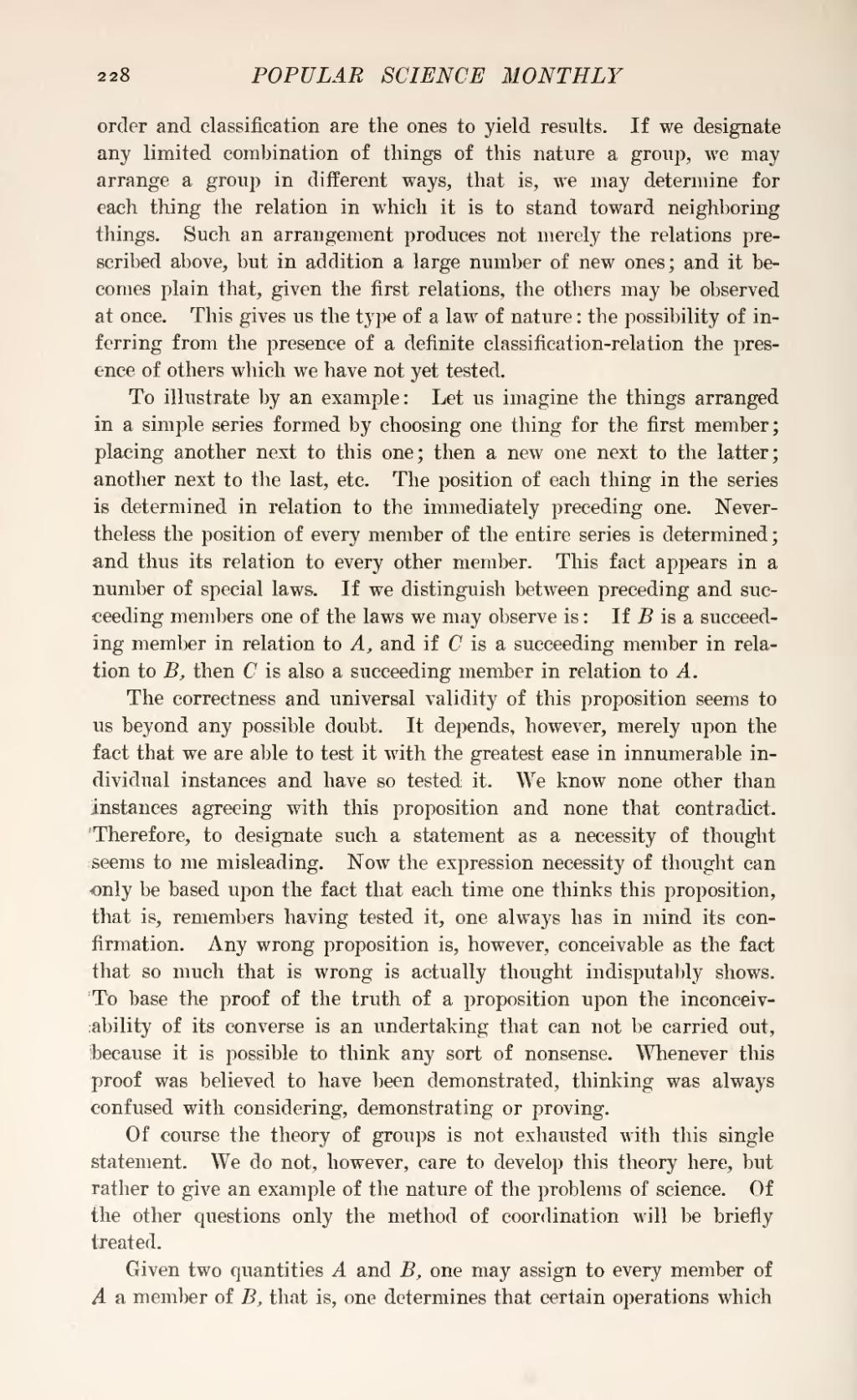order and classification are the ones to yield results. If we designate any limited combination of things of this nature a group, we may arrange a group in different ways, that is, we may determine for each thing the relation in which it is to stand toward neighboring things. Such an arrangement produces not merely the relations prescribed above, but in addition a large number of new ones; and it becomes plain that, given the first relations, the others may be observed at once. This gives us the type of a law of nature: the possibility of inferring from the presence of a definite classification-relation the presence of others which we have not yet tested.
To illustrate by an example: Let us imagine the things arranged in a simple series formed by choosing one thing for the first member; placing another next to this one; then a new one next to the latter; another next to the last, etc. The position of each thing in the series is determined in relation to the immediately preceding one. Nevertheless the position of every member of the entire series is determined; and thus its relation to every other member. This fact appears in a number of special laws. If we distinguish between preceding and succeeding members one of the laws we may observe is: If B is a succeeding member in relation to A, and if C is a succeeding member in relation to B, then C is also a succeeding member in relation to A.
The correctness and universal validity of this proposition seems to us beyond any possible doubt. It depends, however, merely upon the fact that we are able to test it with the greatest ease in innumerable individual instances and have so tested it. We know none other than instances agreeing with this proposition and none that contradict. Therefore, to designate such a statement as a necessity of thought seems to me misleading. Now the expression necessity of thought can only be based upon the fact that each time one thinks this proposition, that is, remembers having tested it, one always has in mind its confirmation. Any wrong proposition is, however, conceivable as the fact that so much that is wrong is actually thought indisputably shows. To base the proof of the truth of a proposition upon the inconceivability of its converse is an undertaking that can not be carried out, because it is possible to think any sort of nonsense. Whenever this proof was believed to have been demonstrated, thinking was always confused with considering, demonstrating or proving.
Of course the theory of groups is not exhausted with this single statement. We do not, however, care to develop this theory here, but rather to give an example of the nature of the problems of science. Of the other questions only the method of coordination will be briefly treated.
Given two quantities A and B, one may assign to every member of A a member of B, that is, one determines that certain operations which

